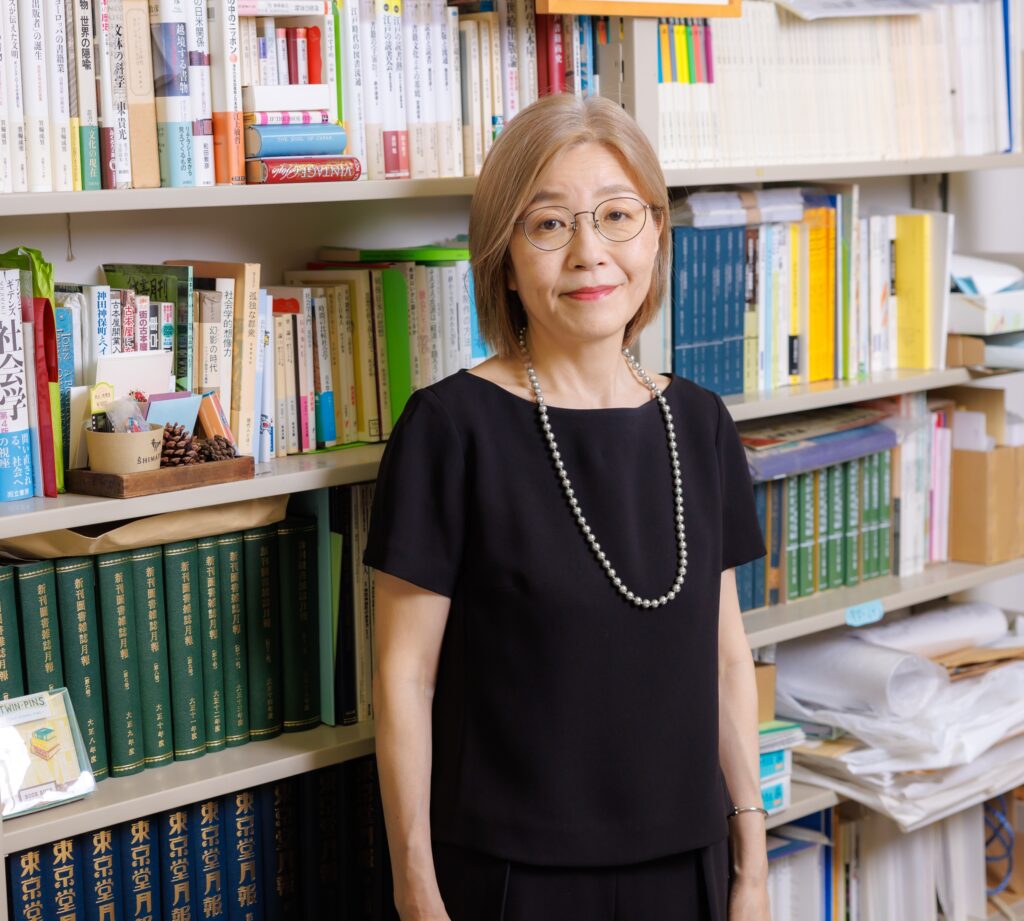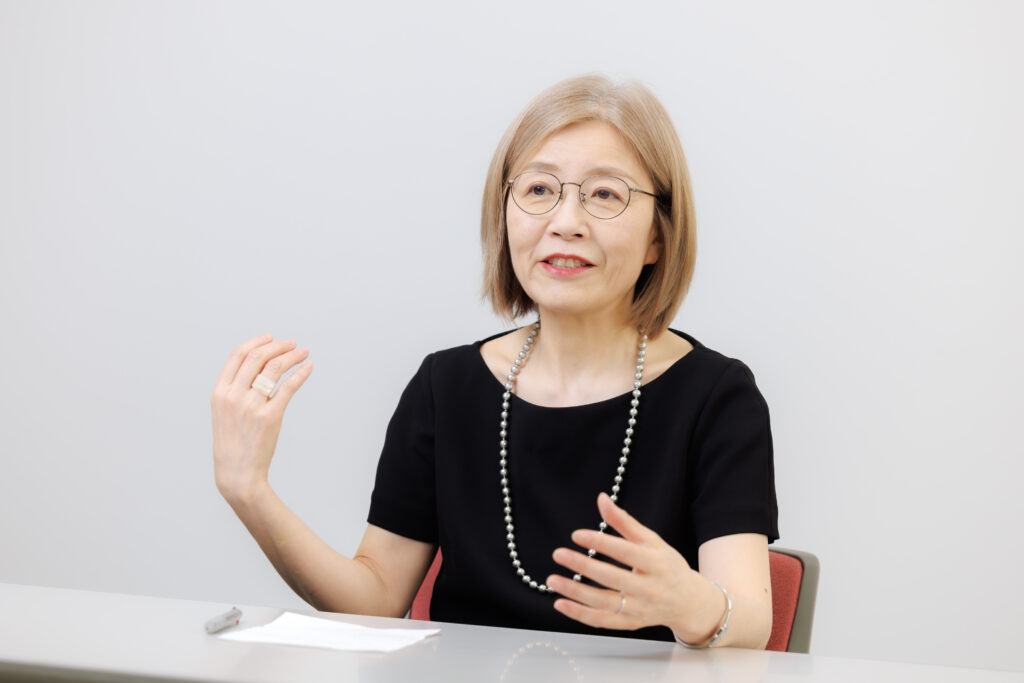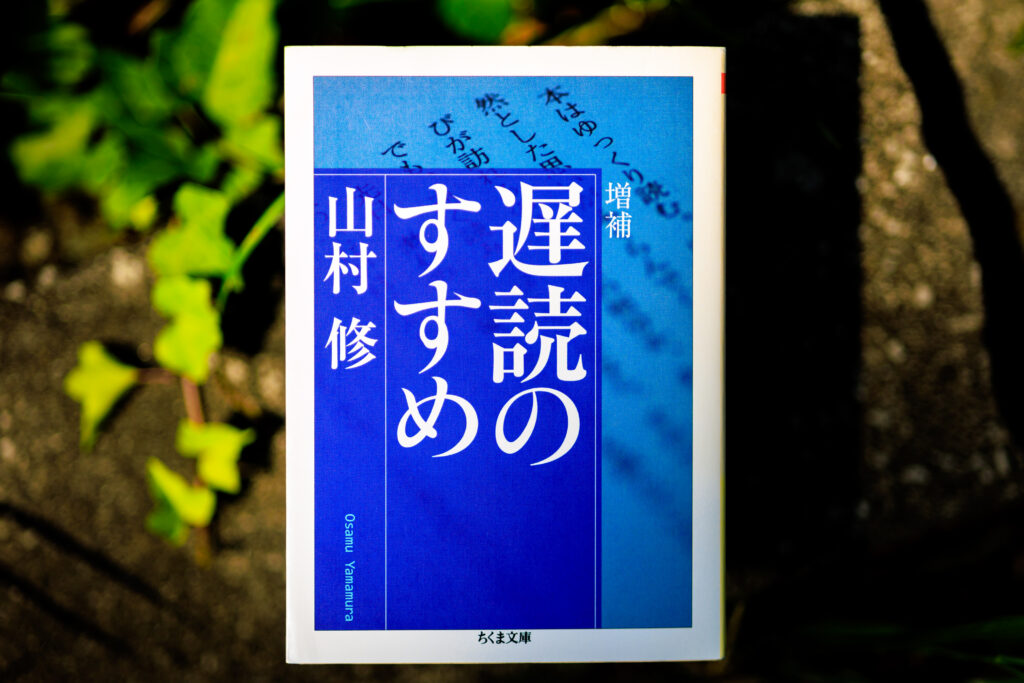
Professor Kyoko Shibano of the Faculty of Humanities is an expert in modern-day media, and in publishing in particular. Adopting wide-ranging perspectives that include technology, industry, distribution, and culture, she examines the media environment and how media is experienced by individuals and society.
My research goes beyond simply studying the content of written materials. Instead, by understanding written materials as a form of media—including their systems of distribution—I carry out research that seeks to clarify the following questions: How are written materials distributed across society? and, What experiences do we undergo through these materials?
Invented by Johannes Gutenberg in the middle of the 15th century, letterpress printing made the duplication of written materials possible, and so encouraged the proliferation of knowledge. By making the same written material available to large numbers of people, letterpress printing transformed access to knowledge itself; it also changed the roles of universities, which previously acted as centers of wisdom through their repositories of rare written materials.
Indeed, the impact of the printing press on society was wide-ranging, such as promoting the standardization of printing types.
A similar technology-driven, systematic change in the accessibility of knowledge is occurring today, as the internet opens up databases of written materials to the public. Now, for example, search engines can be used to quickly find wanted books. But what impact is this modern-day change having on our knowledge bases?
The primary theme of my research is thus to understand changes in society through the prism of media.
Looking to the past for inspiration

When considering the changing face of society, I place great importance on an approach I have termed “past experiences.” For, if we wish to know the present and the future, then the past can serve as an empirical example.
In Europe, for example, there are different distribution channels for books—which are consumed more slowly—and magazines—which communicate topical information in a timely manner.
In the Japanese publishing industry, however, a unique circulation system has been developed in which books and magazines are distributed via the same path. Here, publishing companies and bookstores are linked by intermediaries known as “toritsugiten.”
By tracing its history, we can uncover the societal circumstances and industrial structures that gave rise to the system, and even understand how “reading” in Japan came to be established.
However, with the rise of the internet and smartphones, the magazine market has shrunk, and this Japanese system no longer functions effectively. In order to solve the issues faced by the publishing industry, I believe that understanding the past can be beneficial.
In previous times, printed matter was distributed with far greater flexibility. Japanese bookstores offered both newly published books and secondhand books, for instance, while magazines were sold in general stores.
Instead of blindly conforming to existing norms, I assay to incorporate historical perspectives into our outlooks for the future. And, in this way, I hope to alter how written materials—which is the basis of knowledge—are distributed, and so safeguard the diversity of knowledge.
This is what motivates my research.
Digital archives are gateways to the past
Digital archives can be a powerful tool when delving into the past. In recent years, digitalization of knowledge in various forms—including printed matter and video—has progressed, and efforts to share and utilize this knowledge are gathering momentum.
In particular, I feel there is great potential for the use of digital archives in education; to this end, I experiment with the use of digitalized media in various forms—including video—as teaching materials for my lectures and seminars.
Students today are used to having the latest information at the tip of their fingers. I am confident that the experience of making new realizations through this historical media will inspire them to pry open the doors of knowledge themselves.
But these digital archives are meaningless if they lie buried as mere collections of data. The knowledge of society has been shaped by written materials—how will they be experienced as digital? This is something I intend to investigate carefully through practical means.
The book I recommend
“Chidoku no susume”(Recommendations for reading slowly)
by Osamu Yamamura, Chikumabunko

Osamu Yamamura was both a librarian at Aoyama Gakuin University and a book critic. Today, society demands that we work efficiently while surrounded by huge reams of information; but in this book, Yamamura details the value and the joy of taking the time to read a single volume slowly.
-
Kyoko Shibano
- Professor
Department of Journalism
Faculty of Humanities
- Professor
-
Professor Kyoko Shibano graduated from the Schools of Letters, Arts and Sciences I, Waseda University. After working at a “toritsugiten,” she attended a Ph.D. program at The University of Tokyo Graduate School of Interdisciplinary Information Studies, where she acquired credits before leaving without graduating. Shibano worked as a Project Research Associate at The University of Tokyo Graduate School of Humanities and Sociology, and as an assistant professor, then associate professor, at Sophia University Department of Journalism, Faculty of Humanities, before being appointed to her current job in 2022.
- Department of Journalism
Interviewed: July 2023